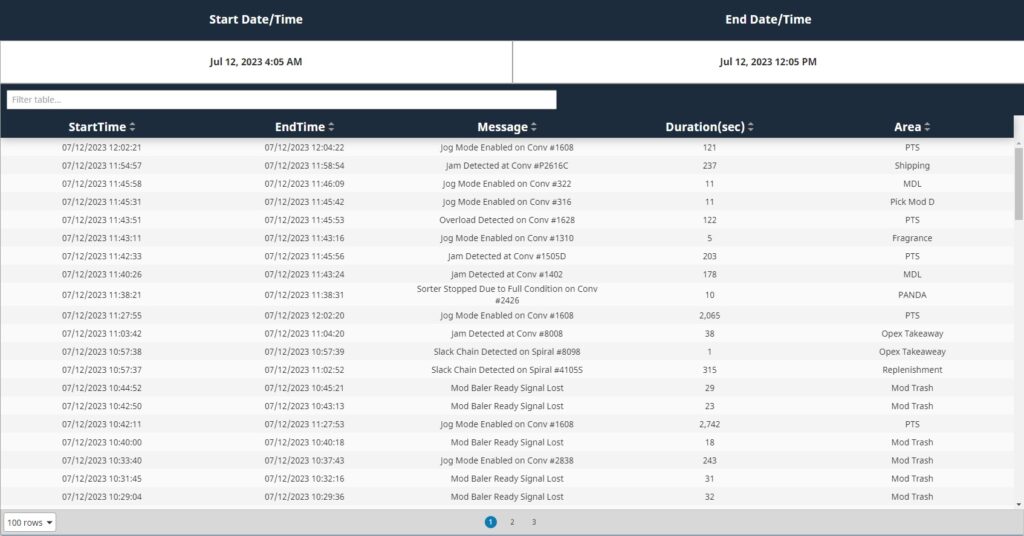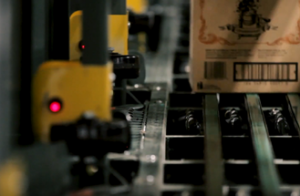Table of Contents
In the ever-evolving landscape of industrial automation, HMI human machine interfaces are pivotal tools that connect humans with complex machinery. These interfaces streamline operations, improve decision-making, and elevate workplace safety. At Lafayette Engineering, we specialize in delivering robust, user-friendly HMI solutions tailored to the unique needs of our clients. With decades of experience in the material handling industry, we understand that a well-designed HMI can be the linchpin of operational success.

What Are HMI Human Machine Interfaces?
HMI human machine interfaces are systems that enable operators to interact with machines, equipment, or systems through a graphical user interface (GUI). These interfaces often consist of touchscreens, buttons, and software that provide visual insights into the machinery’s operation, status, and performance metrics. HMIs play a critical role in various industries, from manufacturing and logistics to healthcare and energy.
By allowing users to monitor and control complex systems intuitively, HMIs reduce operational complexity and minimize downtime. They also serve as a hub for collecting and displaying data, enabling operators to make informed decisions quickly.
Key Features of Modern HMI Human Machine Interfaces
Today’s HMI human machine interfaces are far more advanced than their predecessors. They integrate cutting-edge technology to deliver a seamless experience. Some of the standout features include:
- Intuitive Touchscreens: High-resolution touchscreens make navigation simple, even for non-technical operators.
- Real-Time Data Visualization: Operators can access real-time metrics, charts, and performance indicators at a glance.
- Customizable Interfaces: HMIs can be tailored to display only the most relevant information for specific tasks or user roles.
- Remote Monitoring: Cloud-enabled HMIs allow for remote access, making it easier to oversee operations from anywhere.
- Enhanced Security: Built-in authentication and encryption protect sensitive operational data from unauthorized access.
At Lafayette Engineering, our HMI solutions embody all these features, ensuring a balance of usability and technological sophistication.
Why HMI Human Machine Interfaces Matter in Material Handling
In the material handling industry, precision, speed, and efficiency are paramount. HMI human machine interfaces act as the control center for conveyor systems, sortation equipment, and warehouse automation tools. They provide operators with detailed insights into the performance of these systems, helping them identify bottlenecks, troubleshoot errors, and optimize processes.
For example, an HMI in a warehouse conveyor system can show real-time package tracking, system throughput, and error logs. If a conveyor jam occurs, the HMI immediately alerts the operator and provides step-by-step troubleshooting instructions. This rapid response minimizes disruptions and ensures continuous workflow.
The Lafayette Engineering Advantage
Lafayette Engineering is a trusted partner in delivering world-class material handling solutions, including HMI human machine interfaces. Our team of experts works closely with clients to design, implement, and maintain HMIs that align with their operational goals. We are committed to innovation, leveraging the latest advancements in technology to create interfaces that are not only functional but also intuitive and scalable.
Our deep understanding of the material handling industry allows us to anticipate challenges and design solutions that address them proactively. Whether it’s integrating an HMI into an existing system or building one from the ground up, we approach each project with meticulous attention to detail.
Applications of HMI Human Machine Interfaces
- Manufacturing Automation: HMIs provide operators with real-time data on production lines, enabling quick adjustments to maintain quality and efficiency.
- Logistics and Warehousing: In warehouses, HMIs streamline inventory management, order picking, and shipment tracking.
- Energy Management: In the energy sector, HMIs help monitor grid performance, optimize energy distribution, and ensure system reliability.
- Healthcare Equipment: HMIs are used in medical devices to provide clear, actionable information to healthcare professionals.
- Food and Beverage Production: HMIs ensure compliance with hygiene standards by monitoring critical parameters like temperature and pressure.
Lafayette Engineering has successfully deployed HMI human machine interfaces across a wide range of industries, demonstrating their versatility and impact.
Benefits of HMI Human Machine Interfaces
- Improved Efficiency: HMIs simplify complex processes, reducing the likelihood of human error.
- Enhanced Safety: Operators receive real-time alerts about potential hazards, improving workplace safety.
- Data-Driven Decision-Making: With access to accurate, real-time data, operators and managers can make informed decisions that optimize performance.
- Reduced Downtime: Rapid troubleshooting and error resolution minimize disruptions to operations.
- Cost Savings: Efficient operations and reduced downtime translate to significant cost savings over time.
Designing Effective HMI Human Machine Interfaces
Creating a successful HMI requires a combination of technical expertise and user-centric design principles. At Lafayette Engineering, we focus on:
- User Experience (UX): Ensuring that the interface is intuitive and easy to navigate.
- Scalability: Designing HMIs that can grow with the client’s needs.
- Integration: Seamlessly integrating the HMI with existing systems and technologies.
- Customization: Offering tailored solutions that meet the specific requirements of each client.
- Support and Training: Providing ongoing support and training to ensure users maximize the benefits of their HMI.
How Lafayette Engineering Excels in HMI Implementation
As a leader in the material handling industry, Lafayette Engineering takes pride in our ability to deliver cutting-edge HMI human machine interfaces that align with our clients’ goals. Our comprehensive approach includes:
- Consultation: Understanding the unique needs and challenges of the client’s operations.
- Design: Crafting custom HMIs with intuitive layouts and robust functionality.
- Implementation: Seamlessly integrating the HMI into existing workflows.
- Training: Equipping operators with the knowledge and skills to use the HMI effectively.
- Ongoing Support: Providing maintenance and updates to ensure the system remains reliable and up-to-date.
Partner with Lafayette Engineering for Advanced HMI Solutions
HMI human machine interfaces are more than just tools; they are gateways to operational excellence. By partnering with Lafayette Engineering, you gain access to a team of seasoned professionals dedicated to delivering innovative solutions that drive efficiency, safety, and profitability.
Whether you’re upgrading an existing system or building a new one, our expertise in HMIs ensures that your operation will have the tools it needs to succeed in today’s competitive landscape. To learn more about our HMI solutions, visit our Human Machine Interfaces Services page.
Frequently Asked Questions
Q: What industries benefit most from HMI human machine interfaces?
A: Industries like manufacturing, logistics, energy, healthcare, and food production see significant benefits from HMIs due to their ability to improve efficiency and safety.
Q: Can Lafayette Engineering customize an HMI for my specific needs?
A: Absolutely. We specialize in designing custom HMIs tailored to the unique requirements of each client.
Q: How do HMIs enhance workplace safety?
A: HMIs provide real-time alerts about potential hazards, allowing operators to address issues before they escalate.
By investing in HMI human machine interfaces, businesses can unlock new levels of productivity and reliability. Contact Lafayette Engineering today to discover how our solutions can transform your operations.



